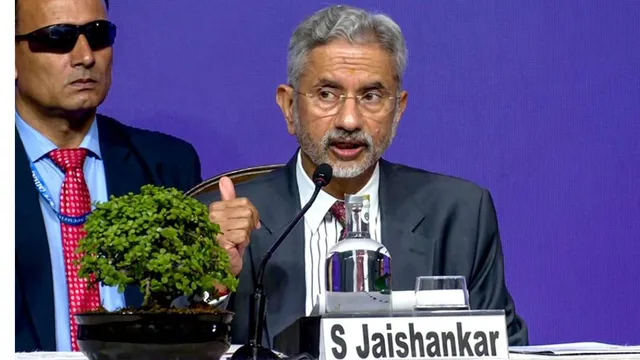- By Aashish Vashistha
- Tue, 03 Dec 2024 08:19 AM (IST)
- Source:JND
External Affairs Minister S Jaishankar on Monday emphasised the importance of implementing "national security filters" for economic decisions, including those related to investment. His remarks came amid rising global concerns over China's aggressive trade practices.
Jaishankar stressed the need for caution in trade, noting that due to the complex nature of global commerce and supply chains, traditional safeguards may not always be sufficient.
"Like it or not, we are increasingly in an era of leveraging, if not of weaponization. Policy makers, therefore, have to place national security filters when it comes to economic decisions, including those of investment," the external affairs minister was quoted as saying by news agency PTI.
ALSO READ: Bengaluru Braces For Light To Moderate Rain Today; Traffic Disruptions Expected To Persist
"This is the trend the world over and we would ignore it at our own peril," he further added. He also stated that India cannot afford to be sidelined if it aims to achieve its ambitious national objectives.
“On the one hand, this means greater data awareness and sensitivity. On the other, it mandates investment in and development of related capabilities. The semiconductor domain is one such example, electric mobility is equally another,” Jaishankar said.
Regarding the second Donald Trump term in the US, Jaishankar acknowledged its significant impact on business circles, though he emphasized that "the only safe prediction is a degree of unpredictability." Reflecting on India’s experience with the first Trump administration, he expressed confidence that the strategic convergence between India and the US has only strengthened over time.
This growing alignment, he noted, has fostered an environment ripe for exploring "more collaborative possibilities." At the same time, he acknowledged that the relationship will always involve a certain degree of "give and take" between the two countries.
“When we look at economic or technology domains, the case for trusted and reliable partnerships has actually increased in recent years. A lot of what lies ahead would be in fashioning terms of engagement that are perceived as mutually beneficial… the more that India can bring to the table, the stronger our appeal,” he said.

